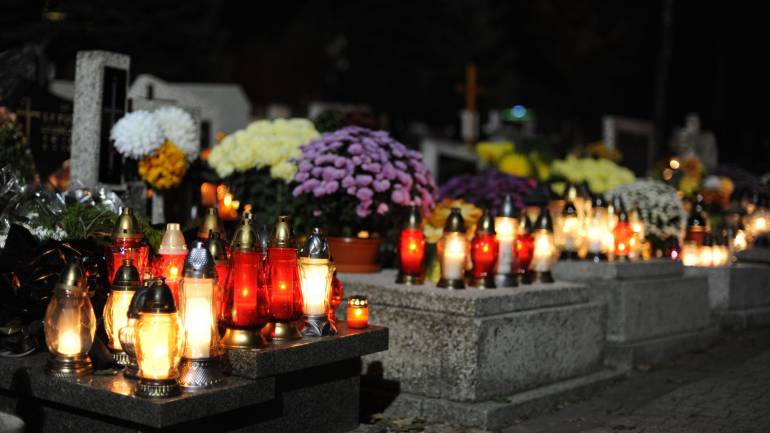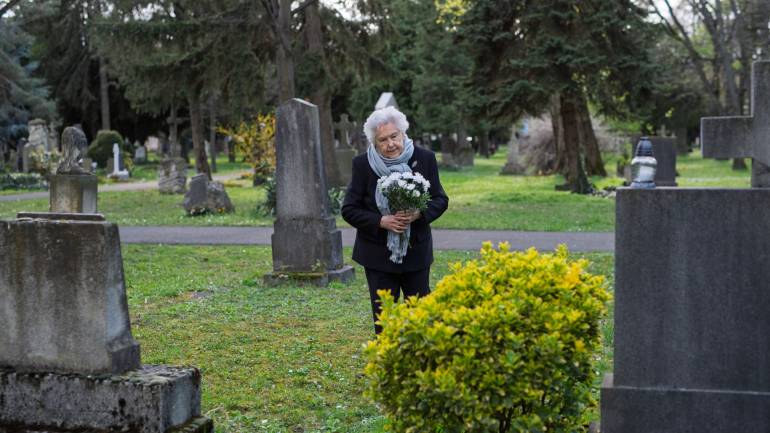Why does Memory Matter?

The first two days of November invite Catholics to reflect deeply on life, death, and the meaning of holiness. All Saints’ Day and All Souls’ Day remind us that life is sacred, death is inevitable, and remembrance is redemptive. Yet, in a world that fears even talking about death, these commemorations call us to confront it, not as an end, but as part of a greater story.
The American writer Joan Didion, in her memoir The Year of Magical Thinking, captures the human struggle to accept death. After her husband’s passing, she couldn’t bring herself to give away his shoes, because “he would need them if he was to return.” Her rational mind knew the truth, but her heart clung to hope. That moment reveals how memory defies mortality. We try to hold on, not because we deny death, but because remembering keeps love alive.
Two Deaths, Two Lessons
A year ago, I lost my father, the first death among my close relatives. It was a painful separation, yet his presence still lingers in our family conversations. As Cicero said, “The life of the dead is set in the memory of the living.” My father left no land or wealth, but he left something more enduring: the memory of a good man.
I compiled his life story into a small book titled Dear Loving Dad, capturing his faith, his simplicity, and his gentle humour. He had a deep devotion to St. Anthony of Padua. Moments before his passing, he whispered, “St. Anthony is calling me; I am going.” Even now, those words echo in our hearts like a final blessing.
Not long after, another relative passed away. At his funeral, his sons spoke bitterly: “What has he left us? He ruined everything by drinking.” Their resentment shocked me. Though they had inherited land and wealth, they spoke as if they were impoverished. In that moment, I understood the contrast between inheritance and legacy. What truly remains after death is not property, but the memory of one’s character.
Even Jesus left us not possessions, but a command: “Do this in memory of me.” Memory, then, is sacred; it is where love endures and faith is transmitted.
Family: The Powerhouse of Memory
Catholic historian Warren H. Carroll once wrote that “the historian is the guardian of memory.” The same could be said of the family. It is within families that we remember who we are, where we came from, and what we stand for.
Saint John Paul II, in his book Memory and Identity, emphasized that memory is essential for individuals and nations to understand their identity. Pope Benedict XVI, drawing from St. Bonaventure, also saw history as theology in motion, a living memory of God’s presence through time.
Pope Francis, long before his papacy, spoke passionately about the elderly as the “repositories of collective memory.” Addressing Catholic businessmen in 1999, he said: “A family that neither respects nor takes care of its grandparents, who are its living memory, is a family that has come apart.” In Amoris Laetitia, he expanded this vision, calling the family the “living memory of humanity.”
Our present Holy Father, Pope Leo XIV, echoed the same thought during the Jubilee of Families, Children, Grandparents, and the Elderly in June 2025, calling the family “the cradle of the future of humanity.” Through generations, the Church has consistently upheld the family as the place where faith and memory meet, the seedbed of values that shape both society and salvation.

Memory, Storytelling, and the AI Challenge
Tamil writer Maruthan observes: “We came to know the past only through oral stories. History and imagination became inseparably intertwined.” In traditional families, storytelling was more than entertainment, it was education, formation, and the preservation of truth.
But in the digital age, this chain of storytelling is breaking. Artificial intelligence offers the illusion that we no longer need to remember, because everything is “saved” somewhere. Yet, as technology expands, memory contracts. When we outsource remembrance to machines, we risk losing the very values that make us human.
Pope Francis warns: “The lack of historical memory is a serious shortcoming in our society. Knowing and judging past events is the only way to build a meaningful future. Memory is necessary for growth.” (Amoris Laetitia, 193) In other words, history is not nostalgia, it is a compass for the future. And the family, with its shared stories, joys, and sorrows, is where that compass is calibrated.
Why Memory Matters
The family remains the first school of love, ethics, and empathy. It is where generations pass down wisdom, where the young learn patience, and where the old find purpose. As Pope Francis notes, grandparents are not “leftovers from life,” but bridges between generations.
When families weaken, society fractures. Today, many of our social problems, loneliness, moral confusion, and alienation stem from the breakdown of family bonds. The distance between generations has widened, and children grow up with fewer elders to guide them. Technology may connect us globally, but it often isolates us emotionally.
Against this backdrop, remembering becomes an act of resistance. To remember is to affirm life, to reconnect with our roots, and to rebuild our humanity. Memory is not passive; it is a creative force that shapes the way we live and love.
What Do We Leave Behind?
We often measure success by wealth, power, or visibility. But when life ends, those measures collapse. As the Italian proverb says, “Quando finisce la partita, il re ed il pedone finiscono nella stessa scatola", “When the game is over, the king and the pawn end up in the same box.”
What matters is not what we own, but what we give: love, kindness, forgiveness, and faith. These are the true legacies that outlive us. They reside not in monuments or data servers, but in living memory, especially in the hearts of those we have touched.
So, as we mark November’s twin feasts of remembrance, let us not only remember the dead but also live the values they stood for. Let us speak of them, write of them, and imitate them, so that memory becomes not a museum of the past, but a movement toward a holier future.










As you said about your father's lost word..
Echo... More profuond...
Thanks for your living experience..
- Reply
Permalink